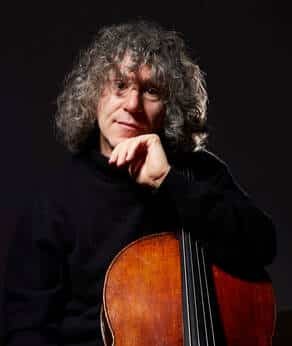How did we get from Fou Ts’ong to Lang Lang?
mainThe Chinese and British pianist Fou Ts’ong, who died yesterday of Covid-19, was an exemplary figure in many ways. Although a visible member of the classical wing of 1960s Swinging London, he was slightly removed from the wilder side of things, shy and disinterested in the dazzle and the bling. He married a Menuhin, got divorced and removed himself still further from the hurdy-gurdy. His second wife was Patsy Toh, a dedicated piano teacher, as private a person as he was.
Few knew the troubles he had seen, how he fled Poland after the Chopin Competition with a testimonial from Sviatoslav Richter and an airline ticket paid by Julius Katchen, how his intellectual parents were made to hang themselves during Mao’s Cultural Revolution. Fou was a pianist who led his piano speak for itself.
News of his death brought a formal note of condolences on his Weibo account from Lang Lang, the regnant Chinese pianist. Never mind that Lang Lang usually has others to write whatever appears on his social media, it was considered important for the present-day pretender to doff his expensive coiff to a trailblazer, the first Chinese pianist to be admitted to the Chopin Competition.
UPDATE: Lang Lang wrote: ‘I still remember the time when I played Rachmaninov’s Piano Concert No. 3 for the first time in London in 2001. After the concert, he gave me a hug with tears in his eyes, and said that he had high hopes for me. Master Fou was a great artist that I respected very much. I will never forget what he said about always staying kind and pure-hearted. His understanding of music was unique.’
From Fou Ts’ong to Lang Lang lies an unbridgeable gulf. One was a filigree, introspective interpreter, the other a total showman. One lived his life in the greatest modesty, the other lives entirely in externalities. One was a pianist’s pianist, the other is a brand king. One suffered mortal torments under the Chinese regime, the other is its poster boy.

Jessica Duchen, who knew Fou Ts’ong, posts a fascinating interview here.





regnant Chinese pianists:
— Yundi Li (Chopin Competition winner, 2000)
— Yuja Wang (Gilmore Young Artist Award, 2006)
— Lang Lang (Gramophone Hall of Fame, 2012)
Prizes doesn’t denote talent, virtue, or moral. Let’s not forget:
–Henry Kissinger (1973 Nobel Peace Prize winner)
Kissinger shared it with the peace-loving Le Duc Tho.
Let’s not forget Barack Obama, Nobel Peace Prize winner, 2009. Even he couldn’t tell you what it was for.
Kissinger tried. What did Obama do for his?
Bang Bang ain’t fit to shine Fou T’Song’s shoes. He also does not belong with the other two.
I live in China and I don’t know a single music lover who appreciates Bang Bang, as he’s commonly-known. His playing is a travesty of taste, respect, and integrity. Thank you for this intelligent contrast, though I think Fou Ts’ong deserves another post dedicated to his own work
It’s hardly Lang Lang’s fault that he was born too late to be punished by the Cultural Revolution.
Nice tribute here. Lang Lang’s bang bang musicality is about as subtle and introspective as CCP agitprop.
You just have to bring politics here?
Without comparing their intellects, let’s acknowledge that Fou Ts’ong had the early advantage of being exposed to Western influences – with his parents who were French language scholars, and his early piano teacher was the Italian Mario Paci. So indeed Mr. Fou was given a worldly view from his childhood years. Lang Lang’s early education and intellectual exposure was far more provincial, and not nearly as thorough. But after arriving at the Curtis Institute in his teens, and being taken under the wings of Barenboim, Eschenbach, and Graffman, he has demonstrated a lack of intellectual curiosity in plumbing the depths of music, being content with displaying his considerable keyboard skill.
Not true at all. He is deeply musical and has a fantastic undesrtanding of masses of the repertoire. He has played with Argerich, for example. And no-one was more generous than he in lauding Fou T’Song!
Are you suggesting that a self-effacing, mild-mannered, reticent Asian man ought to be the exemplar of Chinese pianists?
A bit racist?
Of course, classical piano music is built by self-effacing, mild-mannered, reticent, low-wattage Whites: Beethoven, Chopin, Liszt, Rachmaninoff, Richter, Horowitz, Barenboim, Argerich…
Arrau, Curzon, Richter, Michelangeli, Perahia, Lupu, Zimerman …
How they all play is more important their temperament and demeanor.
I believe you mean “hurly burly”.
Do you, for a fact, know what Lang Lang thinks of his senior colleague and that he did not write the condolence message himself?
Rest in peace, Fou Ts’ong.
And Shakespeare writes it in one word –
When the hurlyburly’s done,
When the battle’s lost, and won.
Ha ha ha, you are laughably ignorant on the subject, and, not surprisingly, dead wrong.
From Folio 1, published in 1623:
“When shall we three meet againe?
In Thunder, Lightning, or in Raine?
When the Hurley-burley’s done,
When the Battaile’s lost, and wonne.”
Look, the very fact that you cite a MODERN English spelling proves how misguided you are.
NOBODY can claim to know how Shakespeare spelled something, because NOBODY is in possession of a manuscript of any of his plays.
The most you can claim is that in Folio x, published in xxxx, a certain spelling appeared as the publisher had it.
Lighten up, sam.
“….the very fact that you cite a MODERN English spelling proves how misguided you are.”
Bollocks.
There have been a gazillion editions of Shakespeare since the First Folio, and most actors nowadays read their lines from one of those Modern English editions, as it is easier than fighting one’s way through Elizabethan spelling.
In fact, in the First Folio (which itself is not the be-all and end-all edition for many of the plays), the spelling of words is inconsistent.
The superb 1986/88 Oxford University Press edition of the Complete Shakespeare was published in both original spelling and modern spelling versions.
It is YOU who are misguided.
To be fair, NL didn’t say “for a fact” that somebody else wrote that tribute from Lang Lang, he only said that LL has people to do that kind of thing for him.
Also, NL does make a fair point that, even if LL’s tribute is sincere and self-written, it is important for him to be seen making one. Keeping up appearances, and all that.
I am Julius Katchen’s cousin, and I was thrilled to read of his generosity. He was such an amazing human being.
You are lucky. Did you have a chance to know Julius Katchen personally? We don’t hear that much about him these days. Thankfully his rich recorded legacy speaks for itself.
Stop bashing Lang Lang and listen to his today performances. He grew to fine artist with great pianistic potentials. I was to his recital lately.
Anthony Tommasini of NYT also begs to differ.
https://www.youtube.com/watch?v=6SJ5uvghRfU You at least may apprecuate this!
It’s a lot of J.Katchen playing on You tube. Finest pianist.
I was a youngish girl when he was performing. My grandparents were extremely close to him. I gather he was quite extraordinary in many ways. I adore his Brahms recordings. Of course, he’s been gone for 50 plus years…
Amazing authentic, honest pianist!
Are you related to Jill Schary. Her mother and Katchen’s mother were sisters. Jill is also the daughter of Dore Schary.
I imagine so. Lucile Katchen was married to my uncle Ira. I’ve heard of some rather relationships to Dore Schary.
Katchen’s recordings are wonderful. Susan Miron, do you by chance know the story of why Katchen came to be included in the Rolling Stone’s ill-fated “Rock and Roll Circus” event/film? Both the Stones and Katchen were with Decca Records I think; still, how odd.
Haters gonna hate…..
Come on Norman. You can surely write a tribute to Fou T’Song without spilling your personal hatred for Lang Lang all over the page. Seems to me quite out of place.
There is a silver lining: Yuja was spared this time.
How did we ? Like Deutsche Grammophon got from Kempff and Michelangeli to Grimaud and Olafsson. I don’t judge, I just see.
Zimerman, Babayan, Perahia…
Mmmh… how much PR money invest DG for Grimaud and Olafsson and how much for the others ?
Grimaud is amazing.
Slipped Disc seems to mirror the bi-polar world we live in. If you love Fou T’Song then you must hate Lang Lang. If you love Beethoven and Brahms then you must hate poor old Amy Beach. If you love Klemperer then you must hate the Anti-Christ Karajan etc., etc…. Interesting how some contributors have copied some political leaders’ penchant for using insulting nicknames. The differences between Fou T’Song and Lang Lang are not the only “unbridgeable gulf”s it appears.
I couldn’t agree more. This ‘bipolarity’, as you so aptly describe it, just turns mean spirited and ugly. It’s such a waste. I understand people get passionate about music and other arts. However, the whole business of putting some artists up on pedestals – while throwing others under a bus – is just a gross exaggeration. Sad, really.
But Barry, some “artists” NEED throwing under a bus….
Fou Ts’ong (made by Chopin Institute / Warsaw):
https://www.youtube.com/watch?v=6SJ5uvghRfU
Regret to see yet another writer of stature use “disinterested” when “uninterested” would be preferable. There are those who argue for the synonymity of the words, but as C.Day-Lewis once wrote, there are too few alternatives to “disinterested” in its preferred meaning to throw it away.
Thank you.
For other readers, the difference between “uninterested” and “disinterested”:
Scenario #1:
Him: “The Yankees are playing the Red Sox. Do you want to go to the game with me?”
Me: “Not really. I don’t care. I don’t like baseball.”
I’m uninterested in the game.
Scenario #2:
Him: “The Yankees are playing the Red Sox. Do you want to go to the game with me?”
Me: “Sure! I like baseball.”
Him: “Which team do you want to win?”
Me: “Oh, I don’t care who wins. I just want to see a good game!”
I’m interested in the game, but I’m disinterested in the outcome.
https://m.youtube.com/watch?v=jK_qBXff20g Could someone please explain to me what is going on here?
Haydn’s delight in the possibilities of the fortepiano is evident in this sparkling sonata. But Fou Ts’ong’s habit of audibly pausing before a change in tone or dynamic spoils the effect. The hardest thing in the world is to come down from f. to p. instantly on almost any instrument (impossible on some), but it is so exciting when it happens.
Does that help?
Marfisa, I mean what`s up with these convulsions? I rely on analyzing body language as the primary source of information about a person. This video is negation of dignity which alone is the meaning of true art.
I wish you hadn’t pointed that out! Now I can’t help noticing. I was watching the hands and arms, not the head, and was thinking about interpretation. In any case, dignity for me ranks fairly low as a value in art; we differ there. (And I’ve seen far less dignified performers.)
Its time for Lang Lang to respectfully criticize this autocratic government for its anti-humane policies
Fou T’Song comes from an entirely different time period from the more contemporary artists mentioned above of his homeland. There was indeed one pianist from China who came to study at The Juilliard School after fleeing the Cultural Revolution. I will always remember his sensitive and beautiful playing, and his humble, beautiful personality. That was Fei-Ping Hsu. I never asked him nor Fou T-Song if they knew each other.
I can’t stand Lang Lang’s exaggerated, self-indulgent playing. I shudder at the thought of this fraud giving ‘master’ classes to future generations.
On a point of detail, some of the press obituaries are writing that he was married 3 times:
” In the 1970s, he married Hijong Hyun, a daughter of South Korea’s Ambassador to Morocco.”
He married Patsy Toh, not Loh, I believe!
Is there even a valid reason to discuss/compare/contrast Lang Lang and Fou Ts’ong other than their both being Chinese, which last I looked was rather a large country? We don’t discuss or analyze the merits of Alicia de Larrocha by talking about José or Amparo Iturbi, do we? Or at the very least those are not the first names that come to mind.
Whatever his merits or demerits Lang Lang has much in common with comparably high profile members of his generation of classical music performers, without regard to nationality (or instrument for that matter). Likewise Fou Ts’ong’s attributes as an artist seem very much of his time again without regard to nationality.
Lang Lang’s critics have their reasons, but I hope they can try to hear his comparatively recent Mozart and Chopin concertos with Harnoncourt, Mehta, and the VPO; and his live solo Mozart recital with a few rarities I’d be sorry to have missed. Perhaps he’s growing up.
you should watch Lang Lang and his young wife clowning around in comedy skits on Chinese entertainment TV shows, as recently as last week. It’s shameful and does nothing to enhancing his piano art (if you can call it that.)
https://www.youtube.com/watch?v=6SJ5uvghRfU
Delete all I say, if you are scared of truth: then listen to this:https://www.youtube.com/watch?v=6SJ5uvghRfU. Chopin would have had you all for supper!